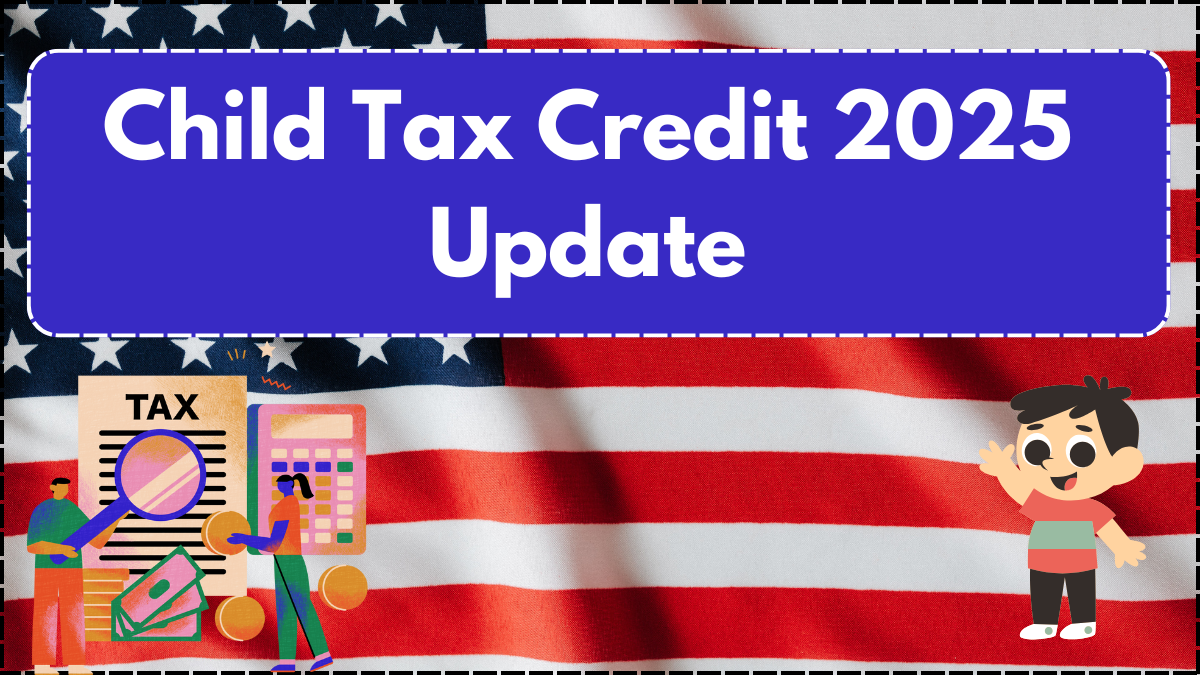The Child Tax Credit (CTC) is a federal program designed to ease the financial strain on families raising children. By reducing tax obligations and, in some cases, providing refundable benefits, this credit helps families manage rising living expenses. Over the years, modifications have been introduced to maximize support, with 2025 bringing notable updates.

CTC Benefit Amounts for 2025
For the 2025 tax year, eligible families can receive up to $2,000 per child under 17. This amount includes a refundable portion of up to $1,700, which allows qualifying families to receive a partial credit even if they owe no federal taxes. The CTC plays a critical role in providing financial relief to households managing childcare and education expenses.
Also Read: New US Immigration Rule: Mandatory Registration for All Foreigners or Face Penalties
Income Limits and Phase-Out Rules
To qualify for the full credit, a household’s income must fall within specific thresholds. The CTC gradually decreases for incomes exceeding these limits:
| Filing Status | Maximum Adjusted Gross Income (AGI) Before Phase-Out |
|---|---|
| Single Filers | $200,000 |
| Married, Joint Filers | $400,000 |
| Head of Household | $200,000 |
For each $1,000 of income above these limits, the credit is reduced by $50. This phased reduction ensures the program prioritizes middle- and lower-income families.
Who Qualifies for the Child Tax Credit?
To claim the CTC, parents or guardians must meet the following eligibility requirements:
- Age Requirement: The child must be under 17 years old by the end of the tax year.
- Relationship: The dependent must be a biological child, stepchild, foster child, sibling, grandchild, niece, or nephew.
- Residency: The child must have lived with the claimant for at least half of the tax year.
- Financial Support: The child must not provide more than half of their own support.
- Citizenship: The child must be a U.S. citizen, U.S. national, or legal resident with a valid Social Security number.
Ensuring compliance with these conditions is necessary for receiving the full tax credit.
Refundable Portion and Additional Child Tax Credit (ACTC)
While the standard CTC reduces tax liability, lower-income families with little or no tax burden may benefit from the Additional Child Tax Credit (ACTC). This feature allows up to $1,700 to be refunded to eligible households, offering financial relief even to those without taxable income.
Recent Adjustments to the Child Tax Credit
The CTC has changed significantly in recent years, with varying credit amounts and refundability conditions. Below is a comparison of past and projected figures:
| Tax Year | Maximum Credit per Child | Refundable Amount |
| 2023 | $1,800 | Up to $1,400 |
| 2024 | $1,900 | Up to $1,700 |
| 2025 | $2,000 | Up to $1,700 |
Potential Changes and Legislative Discussions
Lawmakers continue to debate potential expansions to the CTC, including increased credit amounts or additional benefits for lower-income families. Some states, like Connecticut and Ohio, have introduced proposals for state-level tax credits that would supplement the federal CTC.
Filing Requirements and Important Deadlines
To receive the CTC, eligible families must file a federal tax return. Even those who do not owe taxes should submit a return to claim refundable credits. Filing deadlines typically fall in mid-April, but extensions may be available under certain conditions.
Also Read: DOGE Stimulus Check? Why Its Creator Wants It to Reward Reporting Waste
Final Thoughts
The Child Tax Credit remains a vital financial tool for American families. With updates set for the 2025 tax year, understanding eligibility, income thresholds, and potential refunds can help households maximize their tax benefits. As legislative discussions continue, families should stay informed about any further modifications to the credit structure.
Frequently Asked Questions (FAQs)
Q1: Can I claim the Child Tax Credit if my child turns 17 during the year?
A1: No, the child must be under 17 at the end of the tax year to qualify.
Q2: Is the Child Tax Credit refundable if I have no tax liability?
A2: Yes, up to $1,700 of the credit can be refunded to eligible families through the Additional Child Tax Credit (ACTC).
Q3: How do I determine if my income qualifies for the full credit?
A3: If your Modified Adjusted Gross Income (MAGI) is below $200,000 (or $400,000 for married couples filing jointly), you qualify for the full credit. Income beyond these thresholds results in a gradual reduction.
Q4: Are there any additional child tax credits at the state level?
A4: Yes, some states offer supplementary credits. For example, Connecticut and Ohio are considering expanding their child tax benefits.
Click here to learn more
Akesh is a furniture expert with years of experience in design and craftsmanship. Specializing in sustainable materials, he shares his expertise to help people create stylish and functional living spaces.
